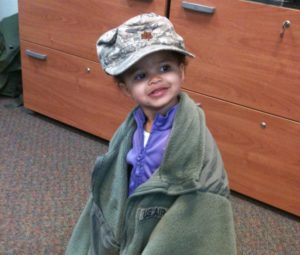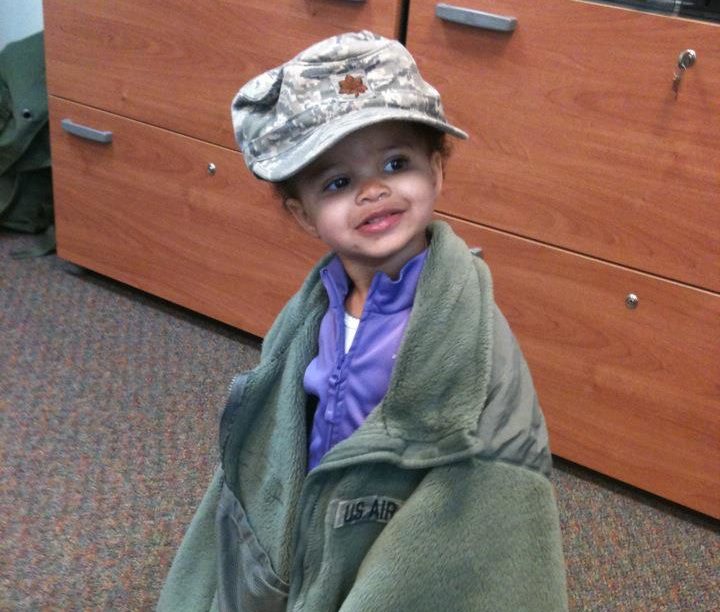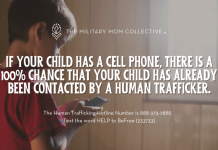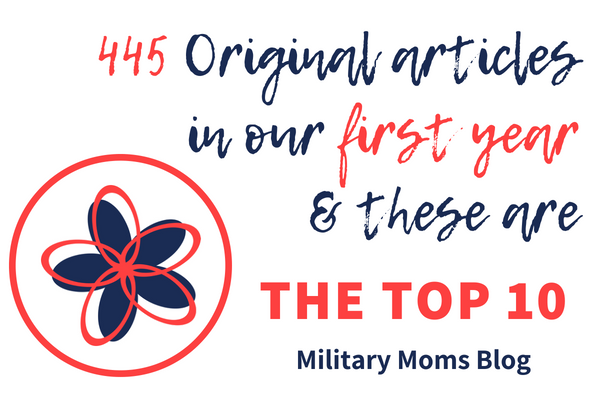
I grew up living the life of a “military brat.” My dad served in the Air Force for twenty years. We used the term “military brat” as did everyone else we knew. It wasn’t in an offensive way, it merely let the world know who we were: children of military members. This was important since so many of us introduced ourselves to new people every few years.
To the military community, telling someone you were a “military brat” instantly led them to believe that you have “traveled the world,” faced adversity, and are more resilient than your typical kid. To the public, it can have a negative connotation and imply that the child gets his or her way more often than not, acts out for attention, and has to do whatever it takes, positive or negative, to fit into a new place.
I grew up before the War on Terror when a military child lived a life that was more predictable. Currently, this life requires more resiliency considering the frequent deployments, long work weekends and global temporary duty locales; or worse–the loss of a parent. All have the potential to affect children and while “military brats” live a life exposed to diverse cultures, countries, and people, they also know what it’s like to yearn for someone they love. Much too early in their lives, they learn first hand the sacrifice it takes to serve this country, because they too make sacrifices.
However, being a military child still has benefits.
It means not knowing what it’s like to go hungry even though 13 million children in this country know and live that pain.
It means special activities and privileges that focus on military children.
It means having an automatic support system through the military installation and active duty unit.
The military enjoys great diversity, which often shelters “military brats” from atrocities like racism. Race and color are not of great importance when the defense of this country is on the line. Often, military kids don’t experience it first-hand.
However, I’ve recently dealt with a minor disciplinary issue with my oldest son and it got me thinking. I say minor, but the truth is it’s almost soul crushing to hear that my little angel is less than perfect and that he ever behaves in a way that his father and I find unacceptable.
The teachers handled the situation promptly and effectively and my husband and I backed them fully. The consensus between us seemed to be that while “military brats” live with some privilege, they are not “brats” and must adhere to a certain level of discipline and respect.
I couldn’t help but wonder how my son’s behavior might have been perceived if we didn’t live on base or if my kids did not attend a base school. Their teachers know every type of “military brat” out there. We live surrounded by other military families. If we didn’t, I wonder if his behavior might have been chalked up to him being a “military brat” in the negative sense of the term.
Just suppose, for a moment, that the Air Force assigned my husband to Recruiter duty at a location without a base (i.e. only a recruiting center). Suppose the people in the town knew nothing about military families other than the stereotypes they’d heard. Could people perceive his minor infractions as typical “military brat” behavior? How would they react? Would they ignore it, or worse, accept it?
Does the term “military brat,” that most military families don’t think twice about using, negatively affect nonmilitary people’s opinion of our kids? Does it cause those people to condone or give the “brat” a pass for their sometimes unacceptable behavior?
Does the term put another stereotype on our kids that they don’t need? Because despite being “military brats,” my kids have never lived outside this country. And despite being a privileged “military brat,” my oldest son doesn’t own a smartphone, even though almost every other ten year old at his school does.
I’m not sure.
One thing I do know is that this country knows all about military children and the sacrifices they make. We even take a month to celebrate them. However, is it possible that the term “military brat,” along with the sacrifices they make, grants them an unnecessary pass?
What do you think?











